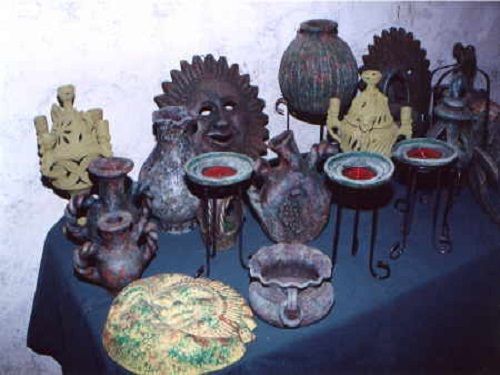
Excelente
603 Views
In Ixtacuixtla, numerous families are dedicated to the production of different paper flowers, basketry, baskets, baskets, chiquihuites, as well as colorful masks, piñatas, figures for floats and Christs. In addition, the artisans of Ixtacuixtla, skillfully create amazing alebrijes, which in all honesty can only have their origin in the imagination.
Ixtacuixtla de Mariano Matamoros municipality in Mexico in the state of Tlaxcala, the word ixtacuixtla that gives its name to the municipality means "In the salt flats" or "where the salt is extracted", it has beautiful buildings such as the Temple of San Felipe Apóstol dates from the 18th century, the Temple of Calvary dates from the 18th and 19th centuries, the Temple of San Felipe Ixtacuixtla construction of the 16th century, as well as various haciendas such as San Antonio Atotonilco, Espíritu Santo, El Ocotal, San Diego Xocoyucan, San Juan Cuauhtlipan, among many more, on May 1 the festival in honor of San Felipe Apóstol is celebrated and, on September 26, Santa Justina is celebrated.
Two groups participate in the dance on Sunday, Monday and Tuesday of Carnival. On Sunday they start dancing at 1 pm in front of the municipal agent's house; then they gather on an esplanade in front of the municipal agency to wait for the invited groups from the surrounding towns. When all the groups have arrived, a parade takes place around the esplanade and then they dance, group by group, for approximately one hour; when the presentation is over, the groups dance through the different streets and in the houses where they had previously agreed. They stop dancing between 7 and 8 pm. The music that accompanies their dance is not restricted to a single musical genre and its origin is diverse; they regularly resort to the "greatest hits of the moment", songs or melodies that are popular on radio and television stations. On May 1st, the festival is celebrated in honor of San Felipe Apóstol and on September 26th, the festival of Santa Justina is celebrated.